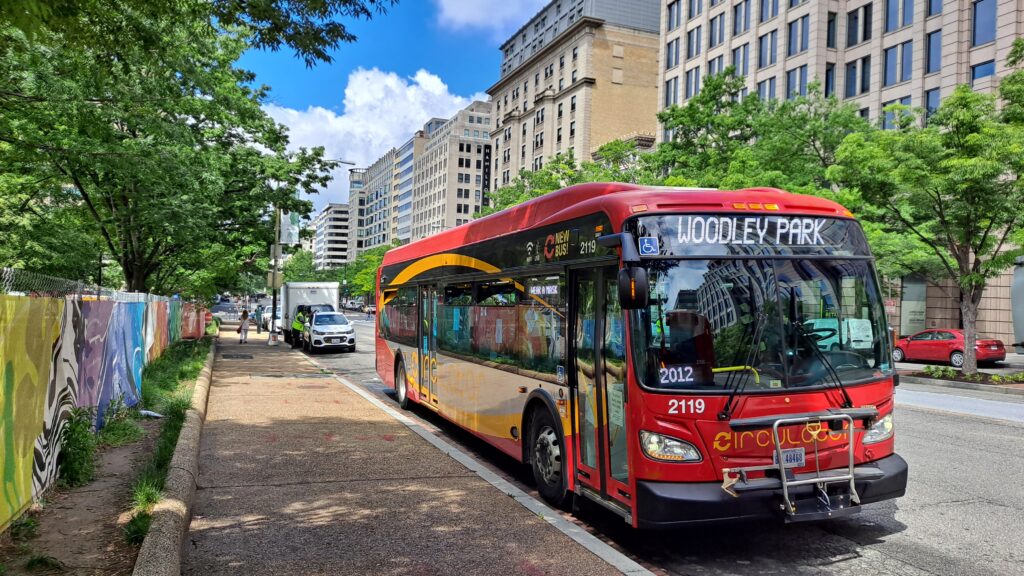When the Mayor announced last spring that D.C.’s Circulator bus service would be phased out, it was not ideal, but the Council agreed to it based on financial need and based on assurances that WMATA bus service would be enhanced to make up for the lost service.
What we have seen since the spring announcement is the story of an inadequate transition plan that is hurting residents who rely on bus service and hurting Circulator employees, who are now facing an accelerated termination process that doesn’t support them properly.
WMATA’s bus network redesign, which the WMATA board plans to approve this fall, should fill those gaps. Circulator service ends on some routes starting today and on all routes by the end of December.
It is disappointing that DDOT did not prepare a more comprehensive transition plan for service gaps.
Robust transit is critical to the District’s workers, residents, and economy. Especially so in my ward – Ward 1 – which is compact and where proportionally more residents use public transit than elsewhere in the region.
There is not much we can do about service during the transition. I want DDOT to work with WMATA to ensure that come next June, the gaps we have identified will be filled. This legislation will require that.
Other Councilmembers have identified gaps in service in their wards, too. All residents who are losing service as a result of the Circulator’s termination deserve a transition plan that addresses their needs, too.
I want to now turn to the future of the Circulators’ bus operators and other employees. I stood with them last week on the steps of this building as they asked for us to do something to address inadequate support in the transition plan for D.C. Circulator employees who have received layoff notices.
I know we can do better.
Some employees have been hired by WMATA and others hope that they will be, too. But they have to start from scratch – significantly lower pay and the loss of all seniority. Plans changed so that an expected long period of transition was shorted to only a few months. The union representing the workers received only two hours advanced notice and there was little discussion with the union or workers during the transition planning process.
These workers, who were considered “essential” during the pandemic, are now feeling “expendable,” as one bus operator recently said.
They deserve better.
Through legislation passed by the Council last week, we support workers financially during the transition. The bill allocates remaining money in the Circulator budget and funds from the sale of Circulator busses and equipment to a fund that will support workers.
The legislation requires DDOT to reexamine options, including the possibility that WMATA could take over operation of the Circulator to preserve service and bus operators’ jobs.
In short, we needed a better plan than the one we got, and we are compelling DDOT to work with WMATA and give us a plan worthy of our residents and our workers.
